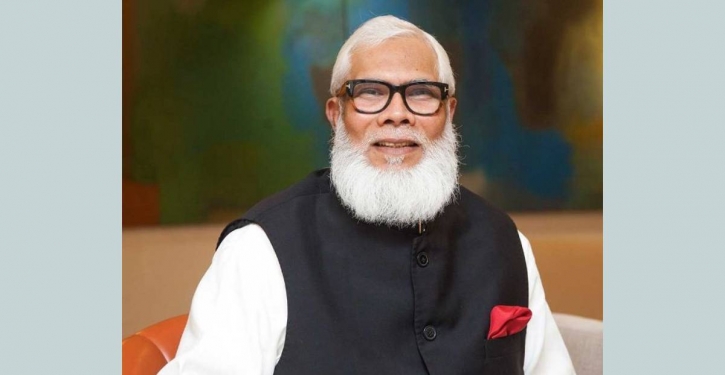Salman urges businesses to maintain austerity in consumption of utilities
BI Desk || BusinessInsider

Prime Minister’s Private Industry and Investment Adviser Salman F Rahman. Photo: File
Prime Minister’s Private Industry and Investment Adviser Salman F Rahman has called upon the businessmen and industrial entrepreneurs to practice austerity in consumption of electricity and other utilities.
“I’ll call upon the private sector to pursue austerity as much as possible in consumption of electricity and other utilities under the present circumstances. We’ll also have to reduce imports of luxurious items,” he said.
The prime minister’s adviser was speaking at a seminar on “Export of pharmaceutical sector upon LDC graduation: strategies and way forward” organised by the Dhaka Chamber of Commerce & Industry (DCCI) on Saturday, reports Bangladesh Sangbad Sangstha.
Dr Ahmad Kaikaus, principal secretary to the prime minister, spoke as special guest while DCCI President Rizwan Rahman chaired the seminar.
Salman said that the world-wide energy crisis which is now being evident is temporary. He said that an agreement has already been signed between Russia-Ukraine on Friday on supply of food grains adding that such an agreement would be signed hopefully on supply of chemical fertiliser. Side by side, there would be good initiatives on supply of fuel oil and LNG.
Stressing on diversification of products to increase foreign currency reserves, he said various steps have been taken to increase LC margin based on demand to improve the dollar reserve situation.
“But, there will remain no apprehension of a dollar crisis if the supply side can be boosted. For this, there is a need to boost export earnings through product diversification. It won’t take much time to reach Bangladesh’s export earnings to $100 billion if similar facilities can be ensured in other sectors like RMG,” he added.
The adviser said that the achievement in the pharmaceutical sector is phenomenal and the secret of this success is the skilled human resources. “Technological advancement is taking place in this sector. So, we need more research and development for more advancement,” he added.
“But shifting to producing biological drugs will be a major challenge for us,” he added.
Salman expressed his high hope to enter into the US market and once access is ensured to the US market, this image will help Bangladesh as the best marketing tool, he mentioned.
He also said that in the next four to five years, the pharmaceutical sector will be a $5-billion dollar industry.
Dr Ahmad Kaikaus said that to cope with the growing energy crisis derived from the ongoing Russia-Ukraine war, the government organisations have been pursuing austerity in consumption of power and other utilities.
“I’ll urge you to practice austerity in the same manner. But, we don’t want economic activities are hampered anywhere. We’ll have to remain alert so that there is no crisis created in the future,” he added.
Kaikaus said LDC graduation would be an opportunity for Bangladesh despite there is some challenges which need to be overcome.
Speakers at the seminar said that the pharmaceutical sector of Bangladesh meeting 98 percent of its domestic demand has the potential to become the next RMG in terms of export.
Rizwan Rahman in his opening remarks said that in post graduation period, Bangladesh would face higher tariff regime ranging from 8%-15% in the export market which may decline export earnings by 14.28% equivalent to $5.73 billion.
Upon economic graduation, he said Bangladesh’s IP exemption benefit will be reduced till 2026 having no import restrictions.
He also requested the government to consider various policy reforms including development of pharmaceutical R&D facilities and export market diversification.
Professor Dr Mustafizur Rahman, distinguished fellow, Centre for Policy Dialogue (CPD), in his keynote paper said that Bangladesh’s pharmaceutical sector meets 97 percent of the domestic demand worth about $3.5 billion.
In FY2022, export of pharma products was $188.8 million. Bangladesh’s rank was 67th in the global pharma export market in 2021. But, in terms of Active Pharmaceutical Ingredient (API), Bangladesh is heavily dependent on imports. In fiscal 2020-21, Bangladesh’s import of API was $1050.1 million. Global API market is of $200 billion.
The API Park having the facility of CETP should be operationalised as early as possible, he mentioned.
To strengthen this sector before LDC graduation, he suggested a strong research and development base, addressing shortages of skilled human resources, exploring opportunities of setting up joint ventures and encouraging contract manufacturing.
“Bangladesh should take advantage of a compulsory licensing provision of the TRIPS Agreement by bringing in required changes in the patent laws and drug policies,” he added.
AHM Shafiquzzaman, director general, Directorate of National Consumers’ Right Protection, M Mosaddek Hossain, managing director, UniMed UniHealth Pharmaceuticals Limited, and Professor ABM Faroque, director, Biomedical Research Centre, University of Dhaka also spoke on the occasion as panel discussants.
























